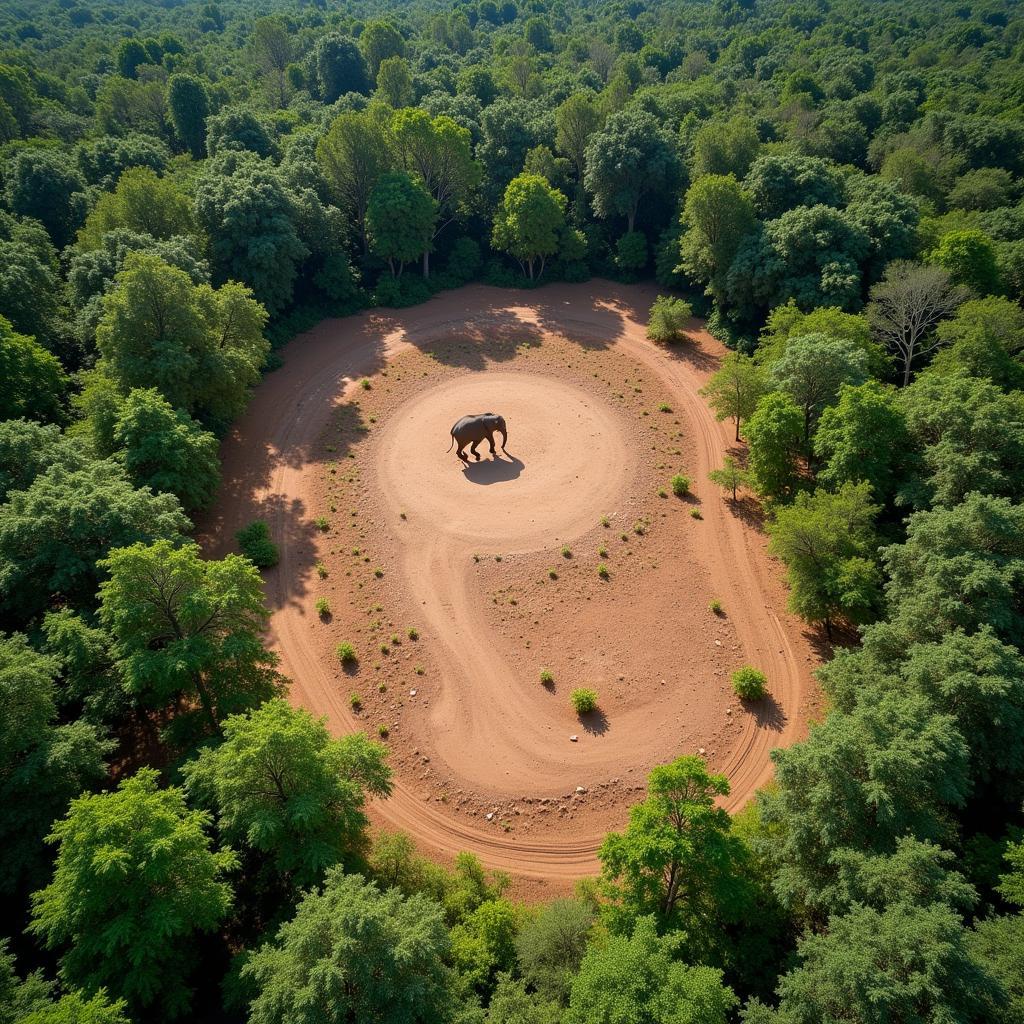Unveiling the African God of Mischief
The African God Of Mischief embodies trickery, chaos, and disruption within various African mythologies. These figures, often depicted as shapeshifters, embody the unpredictable nature of life, challenging social norms and sometimes even acting as catalysts for change. Understanding these deities provides valuable insights into the rich tapestry of African storytelling and belief systems.
Who is the African God of Mischief?
Across the vast continent of Africa, mischief deities take on diverse forms and names, reflecting the unique cultural nuances of each region. While there isn’t a single, universally recognized “African god of mischief,” several prominent figures stand out. They often blur the lines between good and evil, using their cunning to both cause trouble and occasionally impart wisdom. Their stories serve as cautionary tales, teaching moral lessons and exploring the complexities of human nature.
Eshu: The Yoruba Trickster
Eshu, prominent in Yoruba mythology (Nigeria and Benin), is perhaps one of the most well-known figures associated with mischief. Often depicted as a messenger between the gods and humans, Eshu delights in manipulating situations and testing people’s character. He is a force of unpredictable change, embodying the chaotic energy that can both disrupt and create.
Anansi: The Spider of West African Folklore
Anansi, the spider trickster from West African folklore, is renowned for his cunning and ability to outsmart larger, more powerful opponents. His stories, often passed down through generations via african folktales anansi, highlight the importance of intelligence and adaptability. Anansi’s tales traveled across the Atlantic with the transatlantic slave trade, influencing storytelling traditions in the Caribbean and Americas.
Legba: The Guardian of Crossroads
In Vodun, practiced in Benin, Togo, and other parts of West Africa, Legba stands as the guardian of the crossroads, a liminal space between the physical and spiritual realms. Like Eshu, Legba is a mediator, but his trickster nature is less pronounced. He opens pathways, but he also tests those who seek to cross, demanding respect and understanding.
What are the Common Traits of African Mischief Gods?
Despite their diverse origins and representations, many African mischief gods share common traits. They are often shapeshifters, capable of transforming into animals or other beings to deceive and manipulate. They are masters of language and storytelling, using their words to twist situations to their advantage. While their actions can be disruptive and even destructive, they often serve a greater purpose, challenging established order and reminding humans of their own fallibility. These deities embody the complexities of life, acknowledging that not everything is black and white.
Why are Mischief Gods Important in African Culture?
Mischief gods hold a significant place in African cultures. Their stories offer valuable life lessons, teaching moral principles and exploring the consequences of actions. They represent the unpredictable nature of the world and the importance of adaptability and resilience. Furthermore, these figures challenge authority and question societal norms, providing a space for critical thinking and societal reflection.
Conclusion: Embracing the Complexity of Mischief
The African god of mischief, in its various forms, offers a fascinating glimpse into the rich tapestry of African mythology and cultural values. These trickster figures embody the complexities of human nature, reminding us that life is full of surprises and challenges. By understanding their stories, we gain a deeper appreciation for the diverse perspectives and belief systems that shape our world.
FAQ
- Are all African mischief gods evil? No, they are complex figures whose actions are not always purely malicious. They often serve as catalysts for change and teach valuable lessons.
- Is Anansi a god or a spirit? Anansi is generally considered a folk hero and trickster spirit rather than a deity.
- What are some other examples of mischief gods from around the world? Loki from Norse mythology and Hermes from Greek mythology share similar trickster characteristics.
- Why are trickster figures so prevalent in mythology? They often represent the chaotic elements of life and offer a way to explore complex moral and societal issues.
- Where can I learn more about African mythology? Numerous books, academic articles, and online resources explore the rich traditions of African mythology.
Call to action: For any assistance or further inquiries, please contact us at +255768904061, kaka.mag@gmail.com or visit our office in Mbarali DC Mawindi, Kangaga, Tanzania. Our customer service team is available 24/7.



